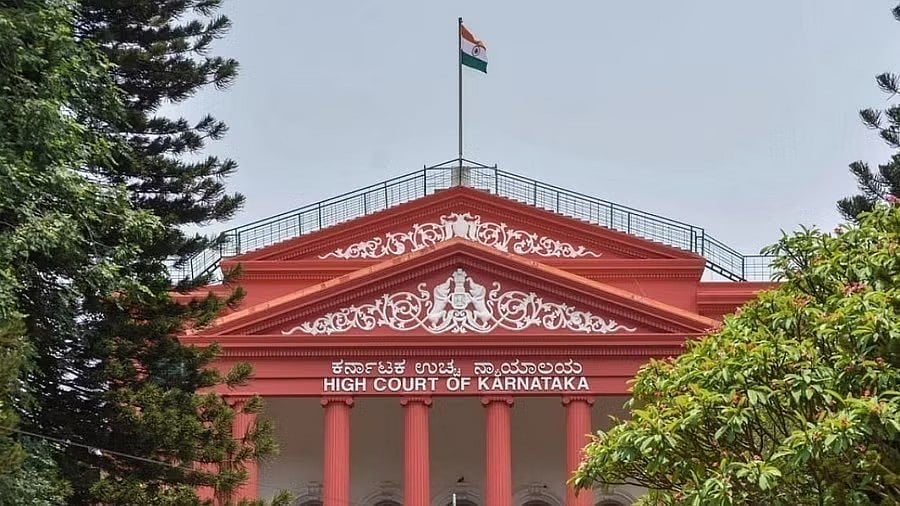
The Karnataka High Court.
Credit: DH File Photo
Bengaluru: If two employees are involved in the same transaction, there should be parity while imposing a penalty, the Karnataka high court has observed in a recent judgement. Justice M Nagaprasanna also said that if a major penalty is imposed on one of them and another with minor penalty, it would undoubtedly become arbitrary, as there is no parity in penalty.
The petitioner KR Udaya Shankar, a resident of Gangavathi in Koppal district, was working as Assistant Manager with United India Insurance Company Limited. In 2015, disciplinary proceedings were initiated against Udaya Shankar after complaints were filed by the agents regarding issuance of certain dummy policies during 2006-2009. In 2017, he was dismissed from service on allegation of misappropriation.
The petitioner argued that while similar allegations were made against other two officers, only he was victimized by removal from service. It was submitted that no joint enquiry was held even though three others were involved in the same transaction and that another senior officer was let off with a minor penalty of reduction of increments and another official was not even called for enquiry.
Justice Nagaprasanna relied upon the Apex Court judgements that delay would undoubtedly cause prejudice to the employee. “In the case at hand, as observed herein above, the delay is not a year or two, but of seven to eight years, incidents being complained of that too by the agents in the year 2015. Therefore, this would be the circumstance enough to quash the impugned orders,: the court said.
The court also noted that two other officials were cohorts in allegation with the petitioner and said that parity in penalty ought to have been maintained. “This Court, on this issue, would have directed imposition of penalty of withholding of increments as directed against Senior Officer, but the proceedings are vitiated by delay in its entirety. In that light, the petition deserves to succeed,” Justice Nagaprasanna, adding that the petitioner is entitled to all consequential benefits.